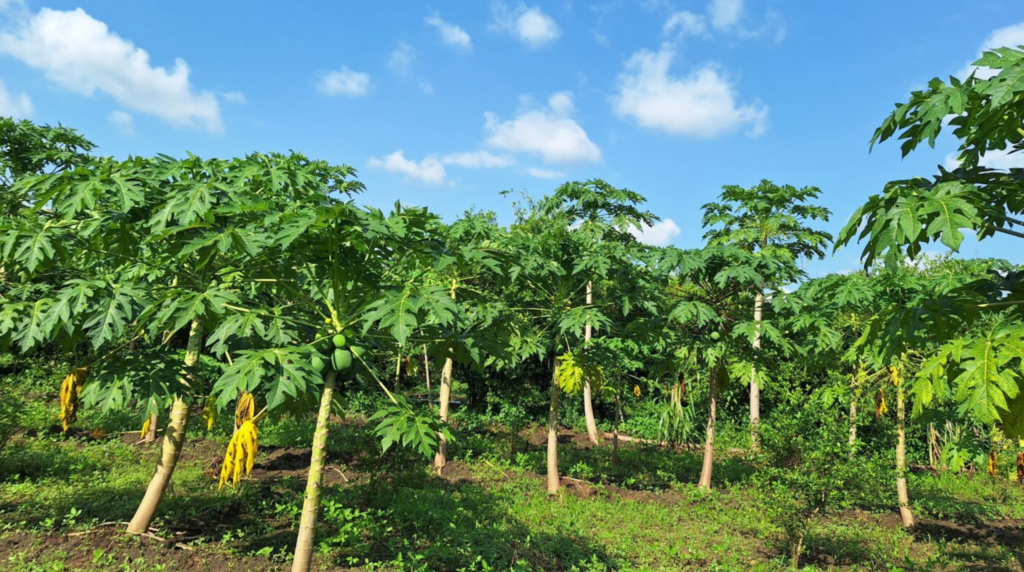Invasives Blog
Author: Wayne Coles
You are here: Invasives Blog
Foreign exploration for candidate biological control agents: 75 years of partnership between Canada and CABI
November 1, 2024
Wayne Coles
No Comments
Celebrating 10 years of biocontrol success: Rwanda’s journey in sustainable pest management
October 15, 2024
Stefan Toepfer, Wayne Coles
No Comments
South Sudan smallholder farmers embrace nature’s solution to papaya mealybug menace
August 12, 2024
Wayne Coles
No Comments
Fight to control invasive phragmites highlighted in new video from CABI partners Ducks Unlimited Canada
August 7, 2024
Wayne Coles
No Comments
Communities take action against woody weeds in Lake Natron Basin to reduce impacts in worst affected areas
July 30, 2024
Wayne Coles
No Comments
Facilitating strategy and action plans to address woody weeds in Tanzania’s Lake Natron Basin
July 22, 2024
Wayne Coles
No Comments
Biological fight against Himalayan balsam stepped up at sites near River Stort in Hertfordshire, UK
July 2, 2024
Wayne Coles
1 comment
Study confirms efficacy of three insecticides to fight fall armyworm as part of Integrated Pest Management
June 18, 2024
Wayne Coles
No Comments
Invasive alien species is biggest threat to biodiversity and livelihoods in Caribbean, according to new field guide
June 12, 2024
Wayne Coles
No Comments
Invasive Species Week 2024 offers chance for CABI to highlight its expertise in weed management in the UK
May 20, 2024
Wayne Coles
No Comments
Subscribe
Find out more
For more information about CABI's work on invasive species, please visit www.invasive-species.org
Contribute
If you are active in the field of invasive species or development and would like to contribute to the Invasives Blog, please contact Donna Hutchinson. We are happy to post credible articles that we think would be of interest to our readership.
Views expressed in contributions do not necessarily reflect official CABI positions.
Archives
Categories
- Agriculture and International Development
- Veterinary and Animal Sciences
- Climate change and biodiversity
- Environmental Sciences
- Invasive species
- Plant Sciences
- Crop health
- Development communication and extension
- Digital development
- Economic development
- Food and nutrition security
- Gender and youth
- Publishing
- Value chains and trade










